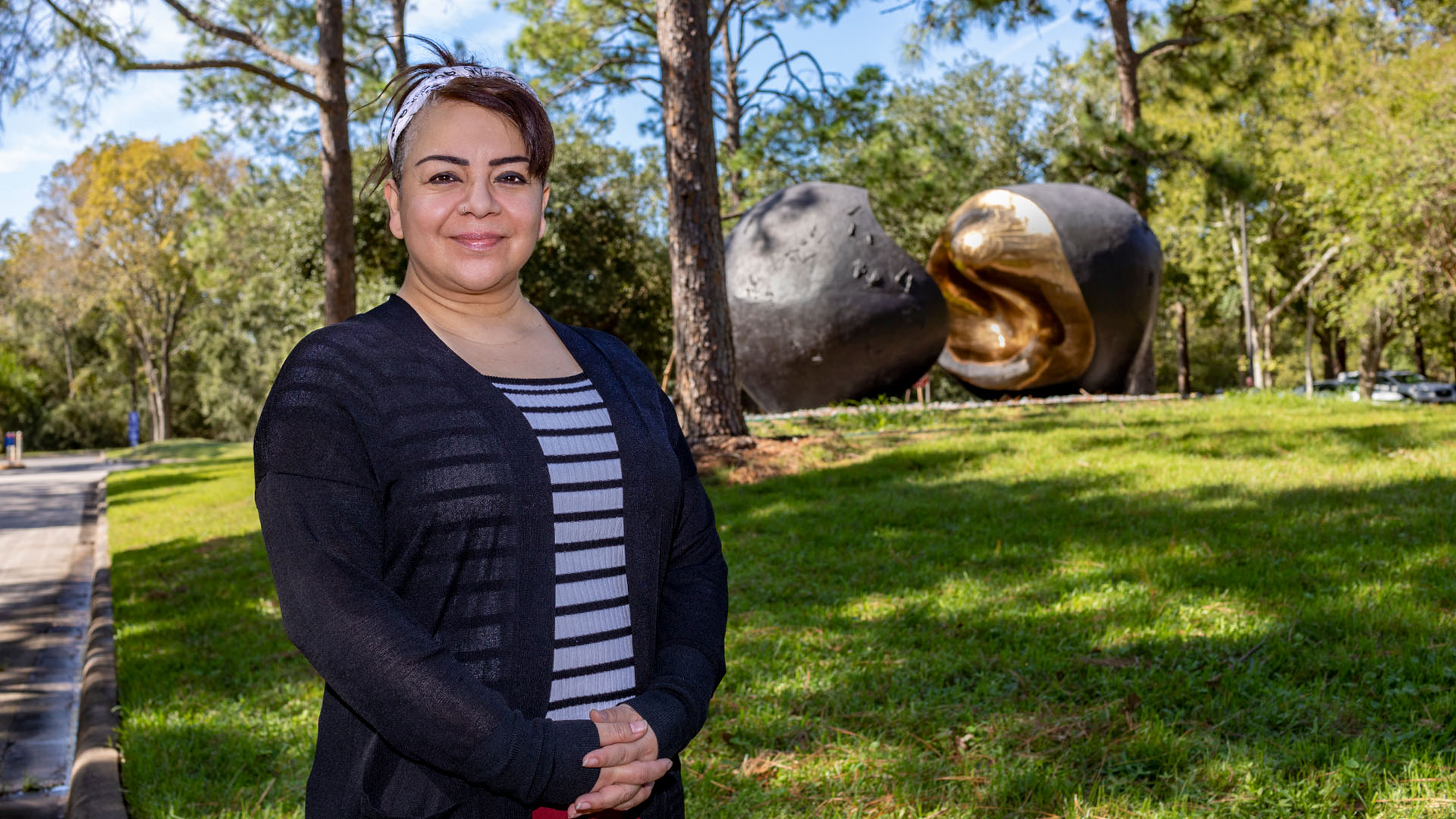- Future Students
- How to Apply
- Visit UHCL
- Admitted Students
- Tuition, Costs and Aid
- Degrees and Programs
- Contact Admissions
- Current Students
- Class Schedule
- Academic Calendar
- Advising
- Events
- Library
- Academic Resources and Support
- Student Services and Resources
- Alumni
- Lifetime Membership
- Alumni Events
- Update Your information
- Awards and Recognitions
- Give to UHCL
Advocate for disabled students wins national leadership award
November 3, 2021 | UHCL Staff

The National Council of Teachers of English has awarded University of Houston-Clear Lake's Associate Professor of Writing and Rhetoric Christina Cedillo the Leadership Award for People with Disabilities for 2021.
The award demonstrates NCTE's vision to strengthen an increasingly inclusive organization that provides more access to distinct voices, helps promote cross-community connections, and supports the agency of diverse leaders in the field.
"On campus, I've worked to advocate for disabled people," Cedillo said. "I've developed practices for teaching that emphasize the notion of inclusion and accessibility. In disability studies, we talk about that a lot — not just about welcoming people into the room and providing resources. It's about accessibility — making sure we're all on the same page, and we all know how to use the resources we have."
Cedillo said that during the pandemic, many educators had to stop and rethink how to make their courses more accessible to students, especially in online platforms like Zoom. "We've had to think about how to accommodate real-life needs," she said. "And part of my advocacy includes finding ways to work on what disabled disability activists describe as 'crip time.'"
The phrase, she said, can cause people to do a double take. "That could be taken as a slur targeting a person with a disability, but what disability activists have done is reclaimed that word and used it to signal a reorientation that centers us and how we do things," she explained. "Sometimes disabled people need a little more time than someone who is able-bodied. Crip time acknowledges that but makes time more flexible for everyone, because real life factors can affect everyone's ability to study, do their job, or just live."
So, Cedillo said, she might set a deadline, but a person with a chronic illness might need a few extra days, or during the pandemic, students might have to take care of parents or children. "We shouldn't penalize people for having responsibilities outside of school or pretend that having to deal with hardship says anything about their academic skills," she said.
Crip time reminds us to plan with enough flexibility to accommodate things that could come up. "How can we show compassion for students and each other, when there are so many difficult things happening?" she said. "If we can prioritize that during the pandemic, we can keep doing it even when the pandemic is over."
What matters, she continued, is to keep students from being "weeded out" based on hardship or their disabilities.
"Statistically, about a third of the population in this country identifies as having a disability, but that's not even counting the people who choose not to identify because they don't want the repercussions," she continued. "Part of the problem is that people think that if you're trying to make things more accessible, you're making it less rigorous. That's not the case. Centering disability reminds us that we have a responsibility to teach students where they are and not make assumptions about who they are."
Cedillo said that beyond her work at UH-Clear Lake, she works to create organizational policies that will benefit disabled people.
"Since I'm a part of NCTE's university-level division, I'm in the Conference on College Composition and Communication (CCCC)," she said. "NCTE is one of the largest conferences in academia that represents every English and writing educator in K-12, community colleges and universities. In CCCC, I am the current chair of the Latinx Caucus, a member of the Committee for Change, and an outgoing co-chair of the Committee for Disability Issues."
The award is bestowed only during those years when the Award Selection Committee decides a nomination warrants presentation of the award. The awards ceremony took place virtually on October 21.
For more information about resources offered at UHCL for people with disabilities, go online.






